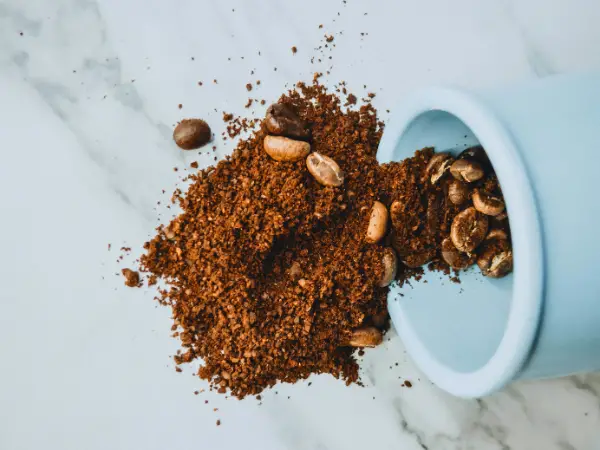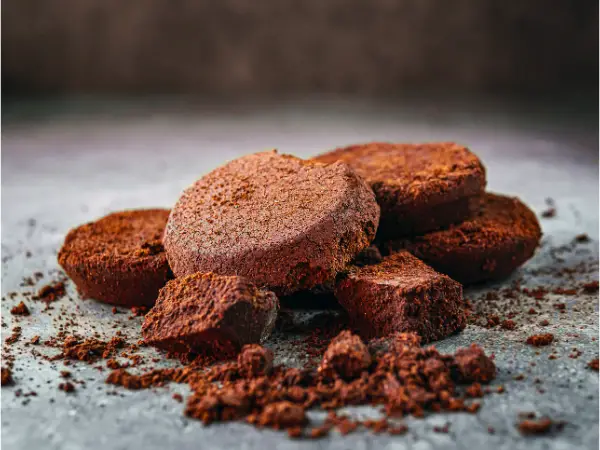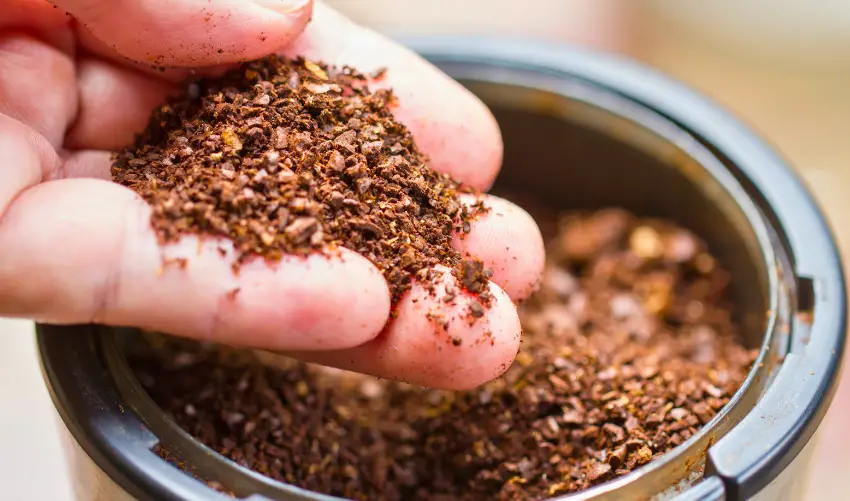Many people toss used coffee grounds down the sink without a second thought—but if you have a septic system, that habit could cost you.
In this guide, we’ll break down how coffee grounds interact with septic systems, why they may pose a hidden risk, and what safer disposal options exist.
How Septic Systems Work
Coffee grounds are common kitchen waste. A septic system manages waste by using natural processes. Knowing the basics can help homeowners make better choices.
The Basics Of A Septic System
A septic system is a vital part of home waste management. It treats wastewater from toilets, sinks, and showers. Here’s how it works:
- Septic Tank: Solid waste settles in a tank. This tank holds waste for treatment.
- Bacterial Action: Septic systems rely on natural bacterial processes. Bacteria break down solid waste into simpler substances.
- Drain Field: Liquids flow from the tank into a drain field. This area filters and absorbs liquid waste into the soil.
Proper function depends on what goes into the system. Harmful items can disrupt this process. Regular maintenance is needed to prevent costly failures.
Why They’re Sensitive
Septic systems are sensitive to many factors. Non-degradable items can clog or damage the system. This includes items like:
- Wipes
- Feminine hygiene products
- Grease and oils
Too many solids or harsh chemicals disrupt bacterial balance. Chemicals can kill bacteria needed for waste breakdown. This leads to:
- Backups in the system
- Odors in the home
- Expensive repairs
Regular checks and proper waste disposal help maintain the system. Homeowners must be cautious about what they flush or wash down the drain.
What Happens When You Dump Coffee Grounds
What happens when you dump coffee grounds? They can cause various issues. Understanding these effects helps homeowners make better choices for their systems.
Coffee Grounds Don’t Break Down Easily
Coffee grounds are not biodegradable. They do not break down easily in septic systems. Unlike organic waste, coffee grounds remain solid. This can lead to serious problems over time.
Here are some important points to consider:
- Coffee grounds accumulate in the tank as solid waste.
- They can contribute to faster sludge buildup.
- They do not decompose like other organic materials.
When coffee grounds enter the septic tank, they create a dense layer. This layer makes it hard for liquids to flow. It can also block pipes and filters.
| Type of Waste | Breakdown Time | Effect on Septic System |
|---|---|---|
| Biodegradable Waste | Days to Weeks | Breaks down easily |
| Coffee Grounds | Months to Never | Builds up and clogs |
The buildup of coffee grounds leads to long-term issues. Homeowners should avoid dumping them down the sink.

Potential Septic System Damage
The presence of coffee grounds can damage septic systems. They increase the need for more frequent pumping. Over time, the accumulation adds stress to the system’s biology. This can reduce system efficiency and lead to backflow.
Consider these potential problems:
- Risk of clogged pipes or filters over time.
- Can lead to sewage backups in your home.
- Higher costs due to frequent maintenance.
gnoring coffee grounds can result in costly repairs. Regular inspection and maintenance can help avoid these issues. Here’s a quick checklist for septic system care:
- Avoid dumping coffee grounds.
- Inspect the system regularly.
- Pump the tank every 3-5 years.
Taking care of your septic system ensures it works well. Avoiding coffee grounds is an easy step toward better maintenance.
Common Misconceptions About Coffee Waste
Improper disposal can lead to serious septic problems. Let’s explore some common myths about coffee grounds and their impact on septic systems.
“They’re Organic, So They’re Safe” — Not Always
Coffee grounds may be natural, but they don’t dissolve in water. Unlike food scraps that break down, coffee grounds remain dense. They can settle at the bottom of your septic tank.
This settling causes clogs and other issues. Many assume organic waste is safe for septic systems, but this is misleading. Here are some points to consider:
- Organic ≠ septic-friendly: Just because something is organic does not mean it is safe for your septic system.
- Coffee grounds do not break down: They pile up over time, creating a dense layer.
- Potential clogs: These grounds can trap other waste, leading to blockages.
Here’s a quick comparison of different kitchen waste:
| Type of Waste | Breakdown Rate | Impact on Septic Systems |
|---|---|---|
| Food Scraps | Fast | Generally safe |
| Coffee Grounds | Slow | Risk of clogs |
| Vegetable Peels | Moderate | Can be safe |
Daily disposal of coffee grounds builds up quickly in the tank. Over time, this can lead to long-term system issues. Relying on the myth that organic waste is safe can cost you.

“Small Amounts Don’t Matter” — But They Add Up
Regularly tossing coffee grounds down the drain may seem harmless. However, it can lead to serious problems over time.
- Daily disposal: Just one cup of coffee may seem small, but it adds up.
- Accumulation: Over weeks and months, even small amounts lead to significant buildup.
- System strain: Repeated use can overwhelm your septic system’s ability to process waste.
Consider this:
- 1 tablespoon of coffee grounds daily = 30 tablespoons monthly.
- 30 tablespoons of coffee grounds = over 1 cup in a month.
- Over a year, that equals 12 cups of coffee grounds.
That small daily habit can become a significant issue. It is essential to be mindful of what you dispose of. Remember, a healthy septic system is vital for your home.
Better Ways To Dispose Of Coffee Grounds
Better ways exist to use coffee grounds without harming your septic system. Let’s explore eco-friendly options and identify what not to do.
Eco-friendly Alternatives
Disposing of coffee grounds can be done in many safe and eco-friendly ways. Instead of sending them to the landfill, consider these options:
- Compost them for garden use: Coffee grounds are rich in nitrogen. They make a great addition to compost piles.
- Use them as natural odor absorbers: Place dried coffee grounds in your fridge or freezer. They absorb unwanted smells.
- Mix into soil as a slow-releasing fertilizer: Coffee grounds enhance soil quality. They help plants thrive.
These methods help reduce waste and benefit your garden. Choosing eco-friendly options is not only good for the environment but also keeps your septic system healthy.
What Not To Do
Knowing what not to do with coffee grounds is just as important. Certain practices can harm your septic system and create problems.
- Don’t rinse them down the sink or garbage disposal: This can cause clogs over time.
- Avoid combining them with grease or oils: This mixture can create sludge.
- Never flush them down toilets or drains: This leads to blockages in plumbing.
These actions can lead to costly repairs. Instead, consider the eco-friendly methods mentioned earlier. Keeping your septic system healthy is important for your home and the environment.
Tips For A Healthy Septic System
Tips for a healthy septic system can help maintain its efficiency. Understanding the impact of everyday actions can prevent costly repairs and ensure a safe environment.
Protect Your System Daily
Daily habits play a significant role in septic health. Simple actions can protect your system from damage. Follow these tips:
- Avoid dumping solids or chemicals. This includes cooking oils, grease, and non-biodegradable items.
- Use septic-safe cleaners and paper products. Regular cleaners may harm beneficial bacteria.
- Spread out laundry and dishwashing loads. This reduces stress on your system and improves drainage.
Watch for any signs of trouble. Slow drains or backups can indicate issues. Address these signs early to avoid bigger problems.
Schedule Regular Maintenance
Regular maintenance is essential for a healthy septic system. Schedule inspections and pumping to keep your system in good condition. Follow these guidelines:
- Pump your septic tank every 3–5 years. This prevents buildup and potential failures.
- Have inspections done by professionals. Experts can identify issues before they escalate.
- Address any signs of backup or slow drainage early. Quick action can save you money and stress.
By following these tips, you can protect your septic system. Regular maintenance and mindful habits lead to a healthier system.
